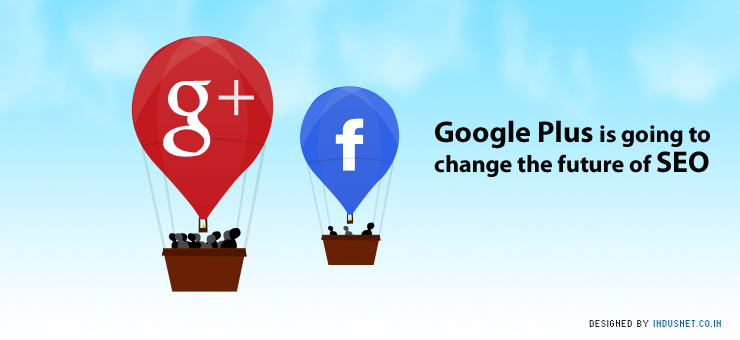
Google+ is a social networking entity that was launched way back in June 2011. Initially, it was touted to be the Facebook killer that would change the world as we knew it. Within a few days, it gained a massive number of users who later seemed to dwindle down in terms of active usage. However, Google+ continues to be an important social networking entity that influences the way we engage in Search Engine Optimization. Being a product of Google, Google+ has a tremendous impact on search results and the plus button is the key to success in SEO. Let us take a look at how Google Plus is going to change the future of SEO.
Search, Plus Your World
A few months ago, Google integrated Google+ with its search engine function and called it ‘Search, Plus Your World’. Though initially criticized by many, Google+ integration into search results changes the way we look at SEO. The idea behind ‘Search, Plus Your World’ was that users rely more on their friends than a search engine, when it comes to search results. If a friend or acquaintance deems a link to be worthy, a user may click on that link more often than he would click on a link suggested by search engines. Google thus creates a map similar to Facebook’s Open Graph and helps connect people with their readers, content and websites. It helps people to evaluate how content and relationships with people are interlinked. Thus an author who has more connections on Google+ may be more reliable than someone who does not use Google+ actively.
Contextual Information
The most appealing factor of using Google+ is that search results become more contextual. With all Google products now housed under a single umbrella, all your account activity will influence your search results. Depending on the context of the search, the results would appear. Indirectly, we may assume that content producers who have an active audience on Google+ will have a better SERP, especially in niche areas. Thus, rel=”author” and rel=”publisher” tags become increasingly important. SEO professionals will then need to concentrate more on the context of a business in terms of its target audience than mere link building as was followed earlier.
Importance of Social Signals
After the advent of ‘Search Plus Your World’, everything that appears in search results is influenced by social signals. What is important to people who are relevant to you (friends, acquaintances, thought leaders you follow, etc) is important to you as well. Thus, your results are more relevant to your account activity than domain authority and links. This is not to say that domain authority is not relevant anymore. It just means that Google now considers your social signals when providing you with search results. SEO professionals will thus have to concentrate more on social media optimization of websites and blogs along with old school SEO.
The Importance of +1 Button
The +1 button needs to be implemented in every blog or website that you own, so that visitors click on that. It is similar to Facebook’s Like button, but only, Google uses this button to recommend content to your followers or contacts when they search for certain keywords. This is particularly useful in carving a niche for yourself in the area chosen. Moreover, a +1’d link has a higher Click-Through-Rate (CTR). This means, it might be shared later on Twitter, Facebook or back again on Google+ increasing social signals and driving traffic. SEO professionals need to remember that a Google +1 button can indirectly lead to higher ranking of page. While traditional SEO practices can’t be ignored, it helps a lot to integrate Google Plus and the +1 button into social media optimization efforts.
Thrust on Content
Google has always reminded us that content is king. With Google Plus and the +1 button, we may take it for granted that if the content is not up to the mark, your website or blog will not be ranked high. The idea thus is to write great content within your niche, use social media to share what you have written and then do the basic groundwork of SEO like you always have.
Personalized Search
At the end of the day, it can be summarized that Google Plus and the +1 button will lead to more personalized search results. What matters to your contacts and friends are assumed to matter to you. What matters to you will thus be assumed to be important for those in your network. All that personal data will influence your search results. SEO professionals will then need to place more emphasis on active social media engagement, instead of link purchasing and submitting to directories alone.
Google Plus, SEO and the Future
Analysts and thought leaders who have been studying the effects of Google Plus on SEO have noted that email marketing will become more important in the future. SEO may be divided into two categories: personalized and non-personalized. For the personal SEO, social signals will need to be evaluated and optimized. For non-personal SEO, traditional SEO strategies will need to be employed as usual. Low quality linking and link purchases will no longer be relevant in niche areas unless SEO professionals are dealing with a very generic topic that has no audience. It will become important to seek the support of those who have social authority. Probably, having a higher Klout score or Author Ranking will become more important.